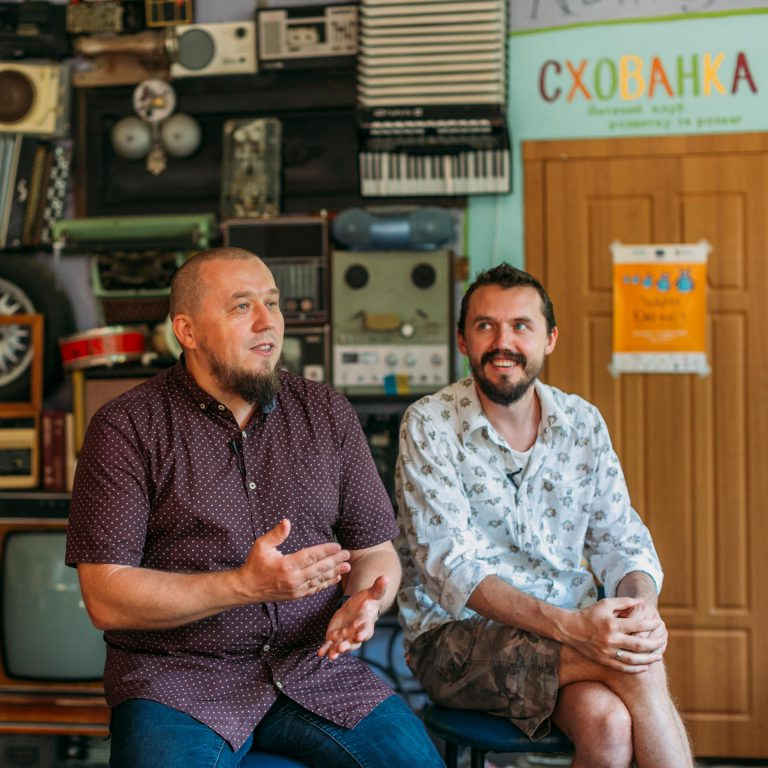Back in the early 2000s, in the industrial city of Kryvyi Rih there were no public spaces where people could grow in leadership skills and creativity. Brothers Roman and Julii Morozov felt it first-hand. At the time, they were students trying to “find themselves” and striving to make their hometown better. Therefore, together with their sister Olesia and several other friends, they gradually transformed an abandoned kindergarten into a cultural community center, “SHELTER+”. Without any big start-up capital, but thanks to hard work, persistence and luck, the centre now has a recording studio, space for artists to rehearse, a sports hall, several alternative educational clubs, theatre studios and more.
The guys had plenty of ideas for how they might change Kryvyi Rih into a safer and more pleasant city. The Morozov brothers have tried to bring home all the progressive ideas they have been noticing elsewhere:
— We started to go elsewhere and observe the way things should be. Our city has a population of 700,000 people (today the population has decreased to about 630,000 – ed.) and there is not a single live music venue, except for the Palace of Youth and Students, where Philipp Kirkorov (famous Bulgarian and Russian pop singer – trans.) used to perform. It seems the journey began when we realised this is our city, which we love and want to see flourish.

The brothers challenged themselves to see how Kryvyi Rih could begin to change — starting with infrastructure, relationships between the locals and simple smiles in the street:
— Now, Kryvyi Rih is a city of opportunities. This is not pathos and not “bait” for someone. There really is so much potential and so little is done here. We understand this and the more we do, the more new opportunities open up.
At first the Morozov brothers had neither enough money, nor the necessary self-confidence. Still there was a clear understanding that Kryvyi Rih and its inhabitants deserved something better. They resolutely began to search for rooms where they could set up a cultural and public space, and eventually found a kindergarten building that, had been lying empty for over seven years after the end of the baby boom.
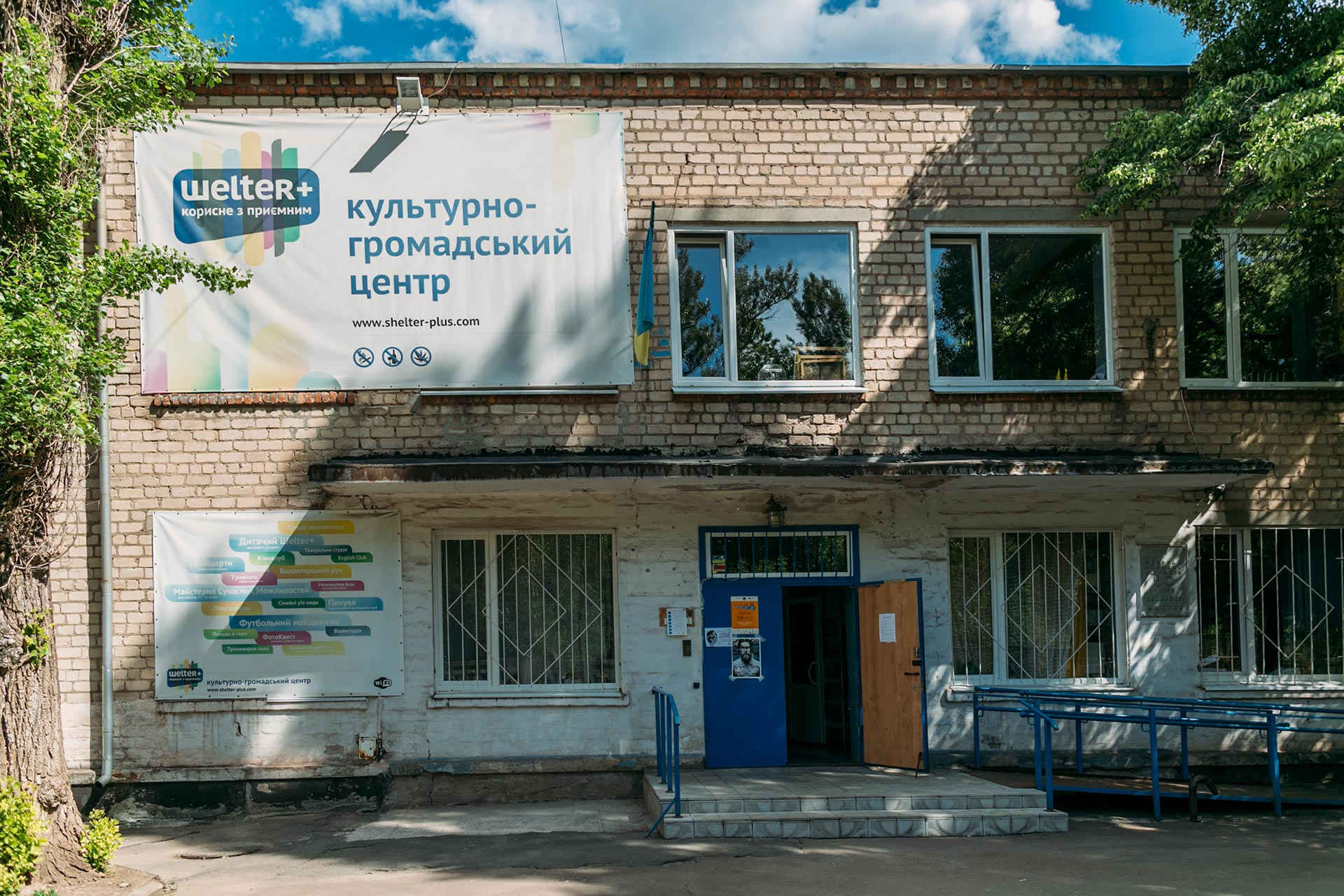
$20,000 was requested to buy the property. Obviously, the guys didn’t have that sum of money. However they scraped together a third of the amount and pledged to pay it within three months. And that is when the real miracles began to occur.
The Morozov brothers met with some Canadians, whose parents had emigrated from Ukraine many years ago, and told them their story. They then passed it onto others. In this way, the patrons decided to help the initiative of their own distant motherland. It is interesting that the founders of “SHELTER+” got acquainted with their benefactors just two years after.
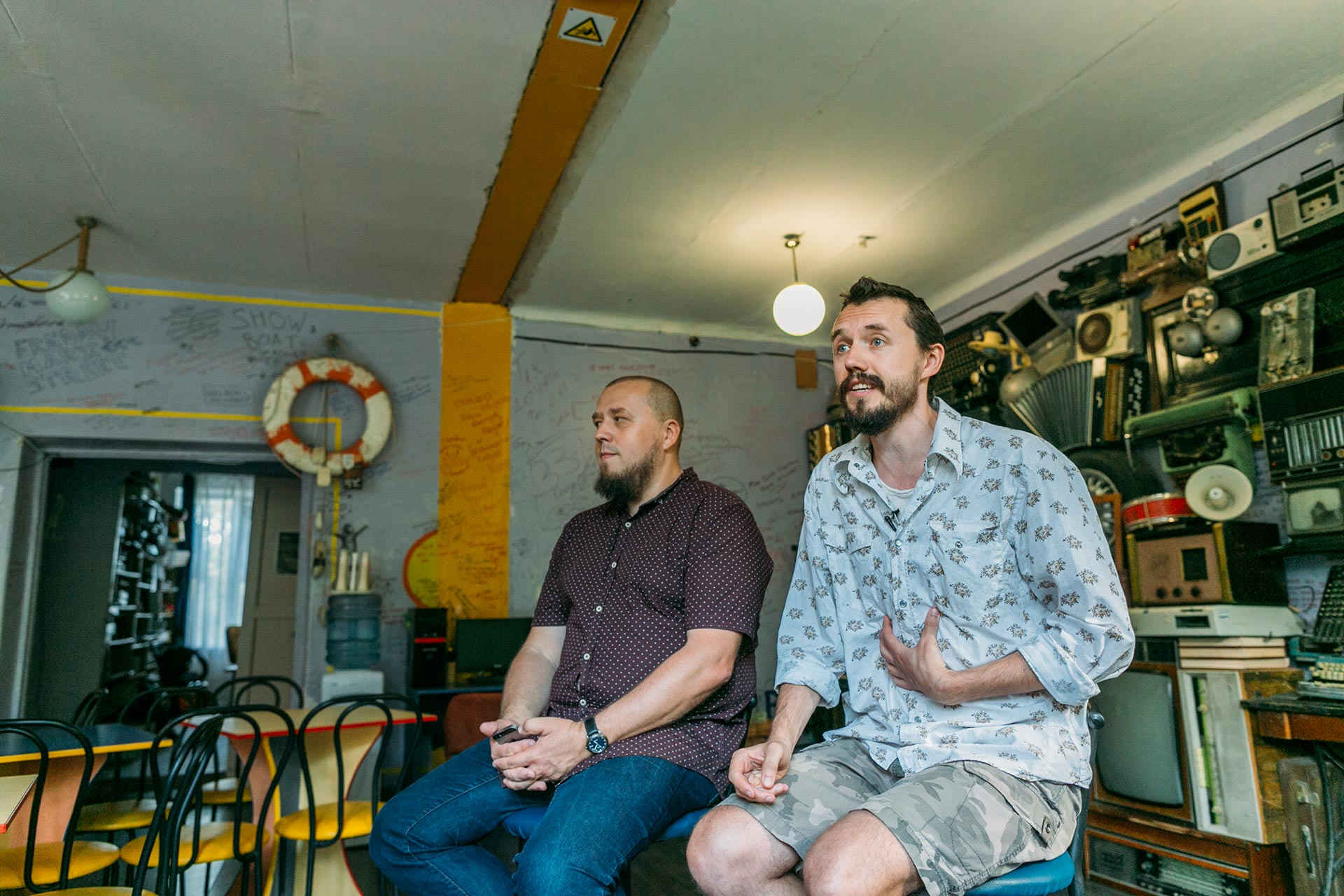
Come and create
Having bought the premises, the brothers felt a real euphoria. They were not even frightened by the fact that it was winter outside and in some rooms there was no heating. They opened the door for everybody who wanted to work on creativity and self-development, because they believed that there were many:
— We just said: “We are open Monday to Saturday: from 3:00 pm to 8:00 pm. Come and create.” We immediately had many different activity streams: choreography, graffiti, makeup, drawing, aerobics, handiwork, breakdancing, games, etc. And people came flooding in — more than 100 at once. However, it was usually only one percent of them, who were really intending to create something. Later that chaotic gathering transformed into much more professional courses and streams. But we are still trying to preserve that informality and to be as open as possible, primarily for those who actually want to develop themselves and create something. When you are doing something genuinely, without any concealed purposes and skeletons in the cupboard, people, whether it’s just local lads or some outsiders, will respect that.
The ability to be flexible and not to lose focus helped the brothers not to be disappointed. There was one time when half of the people left the center and did not return when they asked them to fill in a feedback form. But the brothers kept moving forward:
— At some point, we got a professional computer class. At that time it was a breakthrough, because many people still did not have computers at home. We have a couple of success stories of people who saw a computer up-close for the first time in our center who are now among the top web designers in Ukraine. But at some point, we realized that we no longer needed this computer class, so we closed it and gave away the computers. It is hard to believe that something similar can be achieved in a structure that is funded by someone.
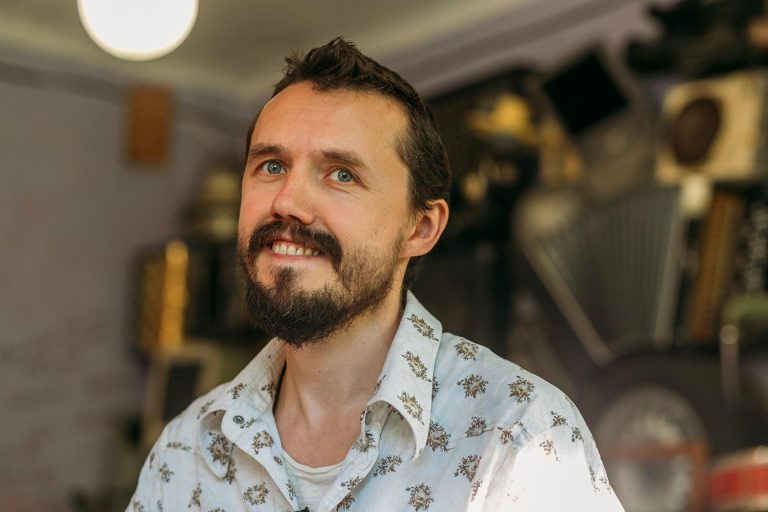
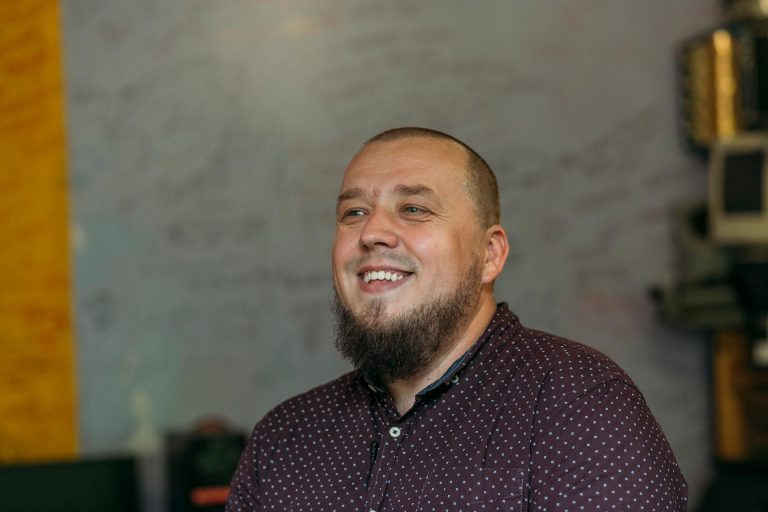
slideshow
The Morozov brothers had founded the SHELTER+ center at the same time as starting a non-profit fund. They quickly realised that they would have to manage them by themselves, as they failed to obtain support from the city administration or the locals themselves.
In the 2000s, even the word “volunteer” was extremely rare to hear in Kryvyi Rih. Therefore, the brothers were fascinated to hear stories about the several quarters’ dwellers and the local government uniting to build a modern sports complex in distant Canada. And volunteers offered to fly from the States to host a free camp for children – which was truly amazing. It was the founders of “SHELTER+” who started to explain to the people of Kryvyi Rih that they were volunteers who simply came selflessly to contribute to any initiative, even if they did not have any idea of what it was for. In a few years the Morozov brothers gathered their people and started to share their experience with other cities.
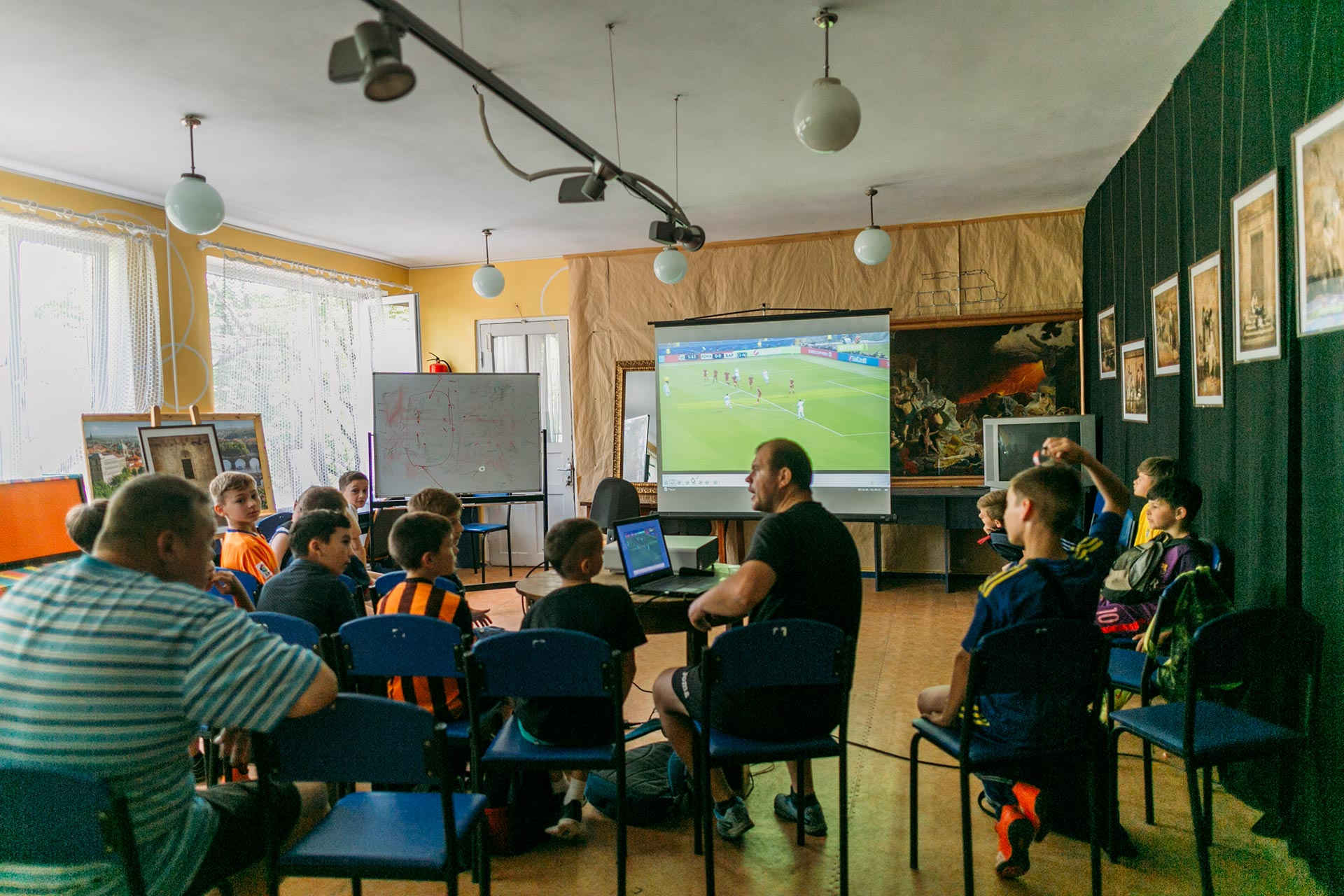
All are family, but not all are relatives
“SHELTER+” began as a single-family initiative, but the Morozov brothers do not like to shout too loudly about this. Foreigners always react positively to family stories, which is not the case in Ukraine, where people can see it as a negative thing. Since “SHELTER+” started, hundreds of different people have come through the center and contributed to its development. Roman stresses that they do not want to downplay the contribution of these individuals:
— There are people, not our relatives, who have invested so much of their effort, ideas and time. Thus, it is unfair to those people, if we say that “SHELTER+” is a project of the Morozov brothers or the Morozov family.
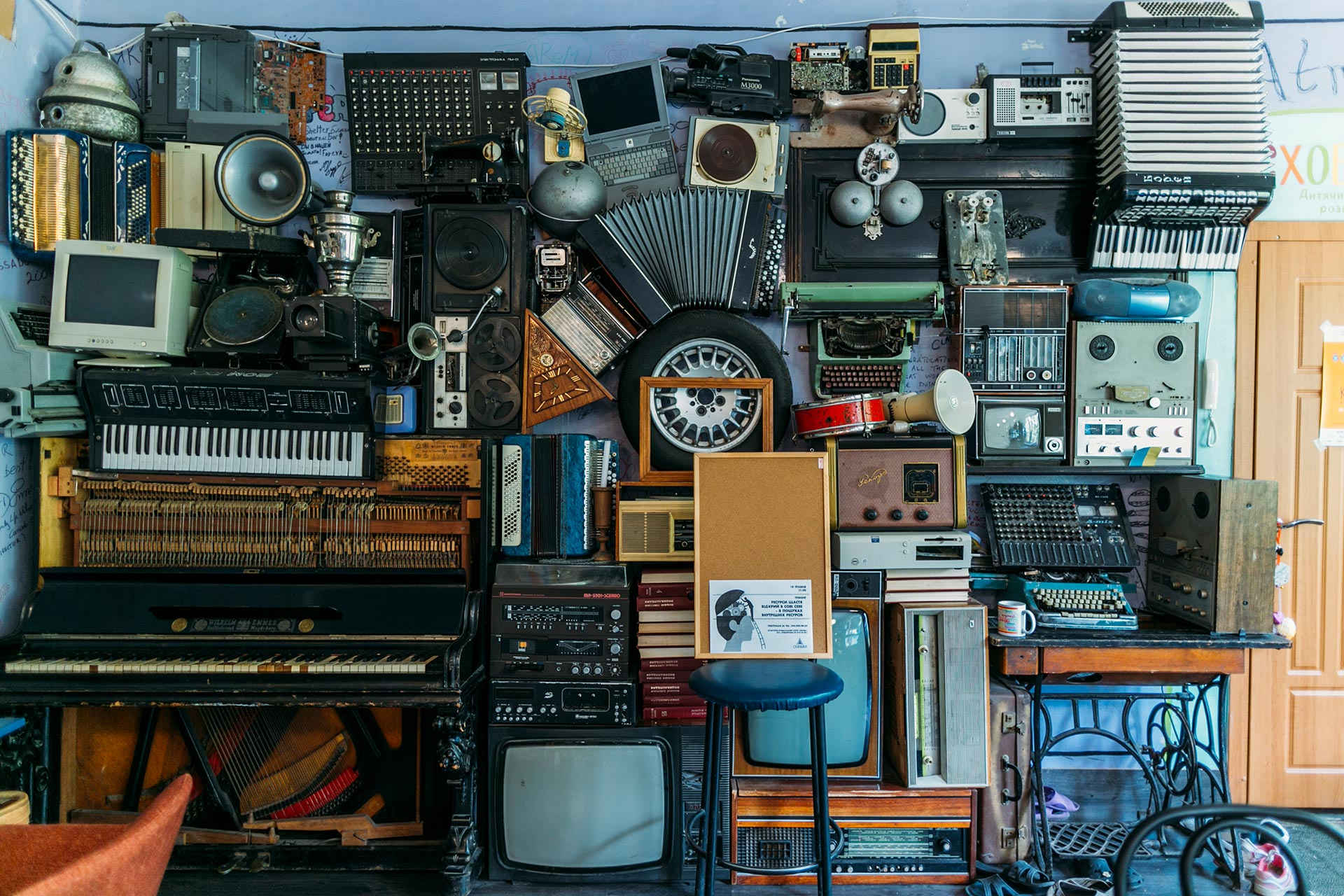
Despite the many advantages of working with your own family, it can sometimes be difficult to deal with close relatives. Particularly, when serious financial liability issues arise, difficult decisions have to be made:
— For example, my mom helps us a lot in order for “SHELTER+” to exist and function. I need to have a real respect for her, but I also understand that there are times when I need to say quite directly: “no, in this case, we cannot do things your way.”
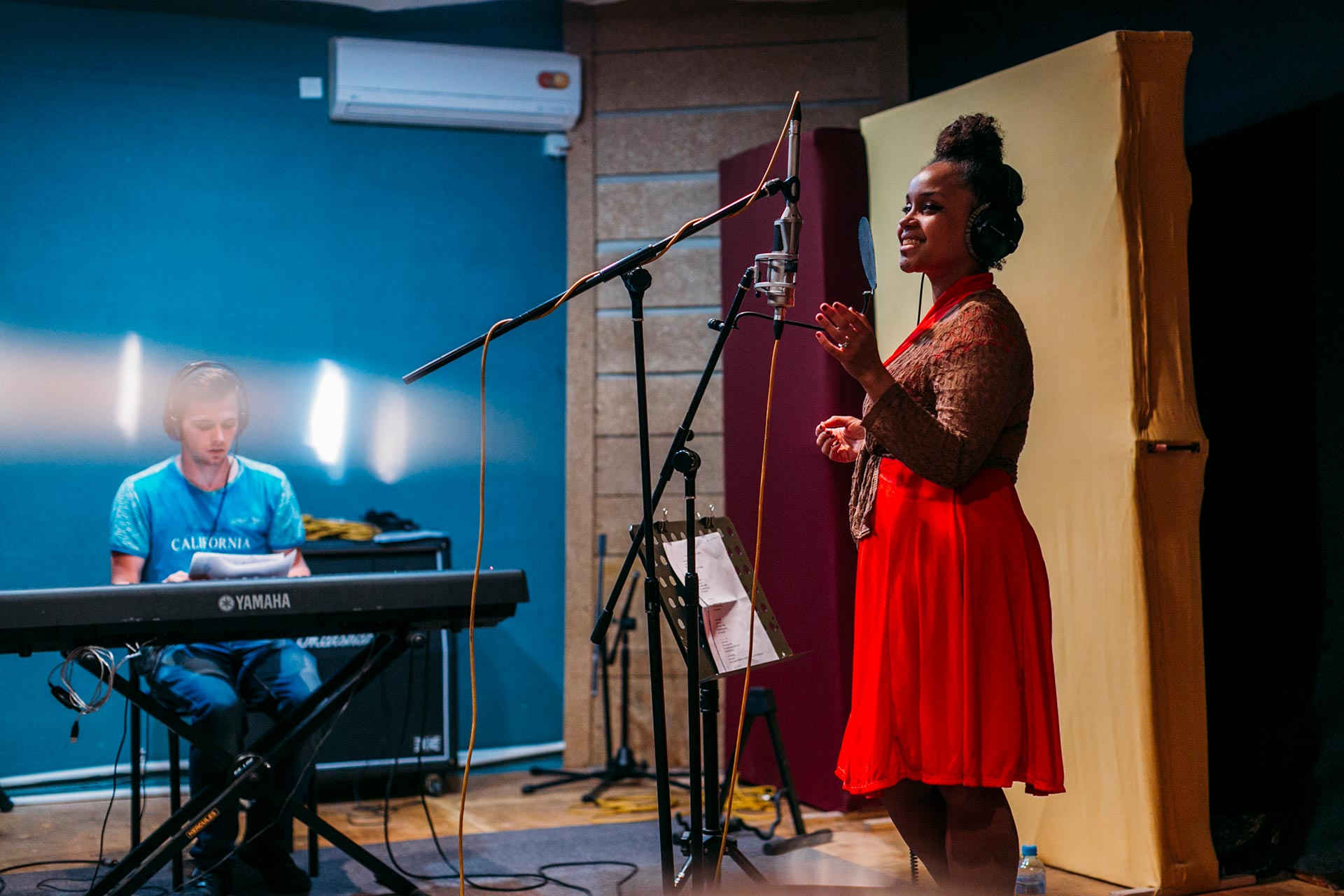
Two grant proposals written by hand
Now the brothers know all the potential pitfalls of running a non-profit organization. But they learned completely from their own experience and by communicating with different people. For example, they learned a lot from the international partnership with the Canadians. After their first meeting, the Canadians won two grants that were written by hand, without even fully understanding what “SHELTER+” was. Their worldview played an important role:
— Some things are born intuitively. There is one more reason I do not like to talk about, because many stereotypes will arise immediately. But it is only fair to say it! It is the Christian worldview, stated in the Bible: You ought to treat others as you would like to be treated. This simple principle allows you to give towards the creation of someone else’s project.
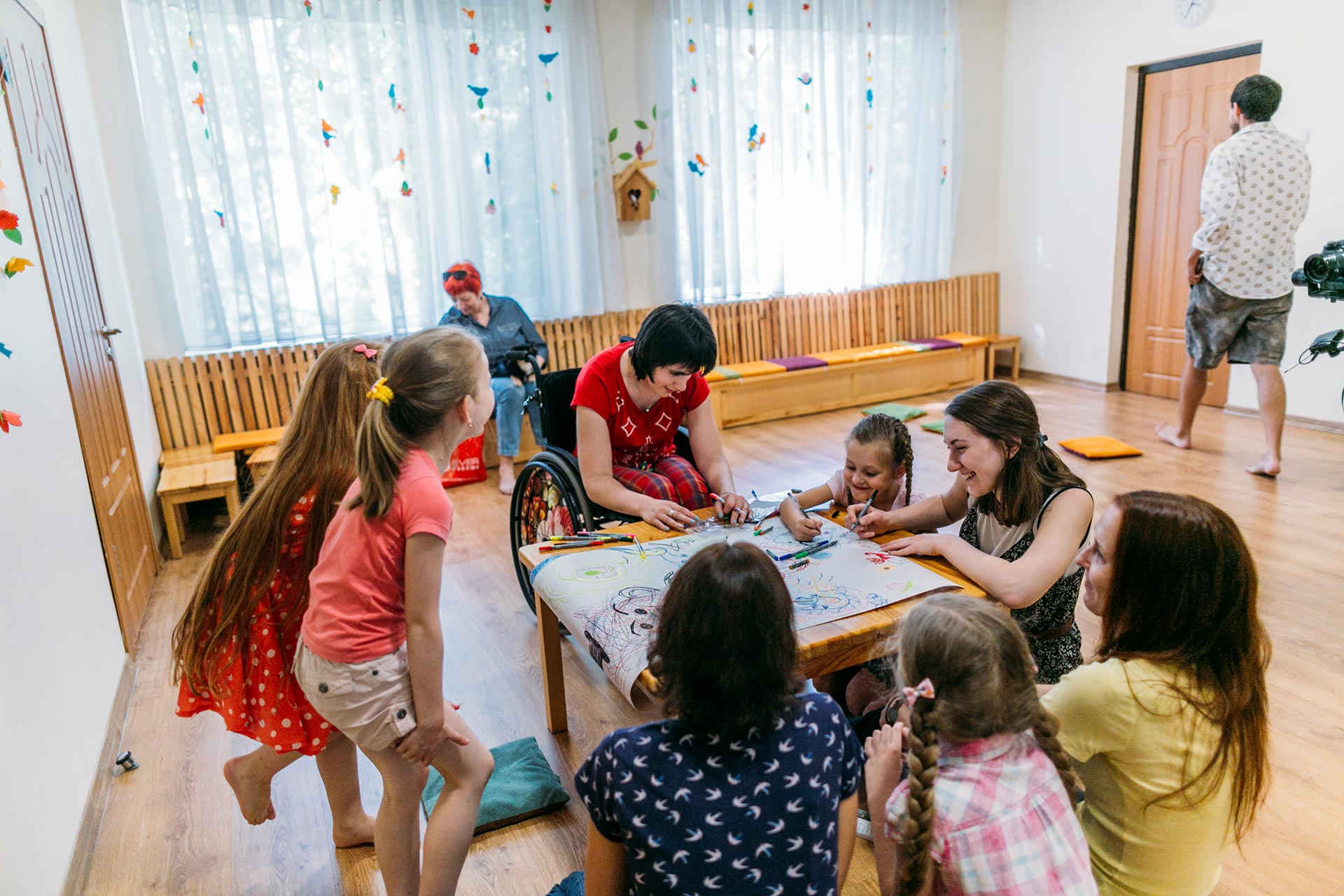
Setting the right trends
It is hard to get your head around how much is happening in “SHELTER+” each month. During a single hour you can attend football theory classes, art therapy lessons, a discussion club meeting, or sit leisurely in a cafe. There are even facilities to accommodate guests from other cities or countries for a few days.
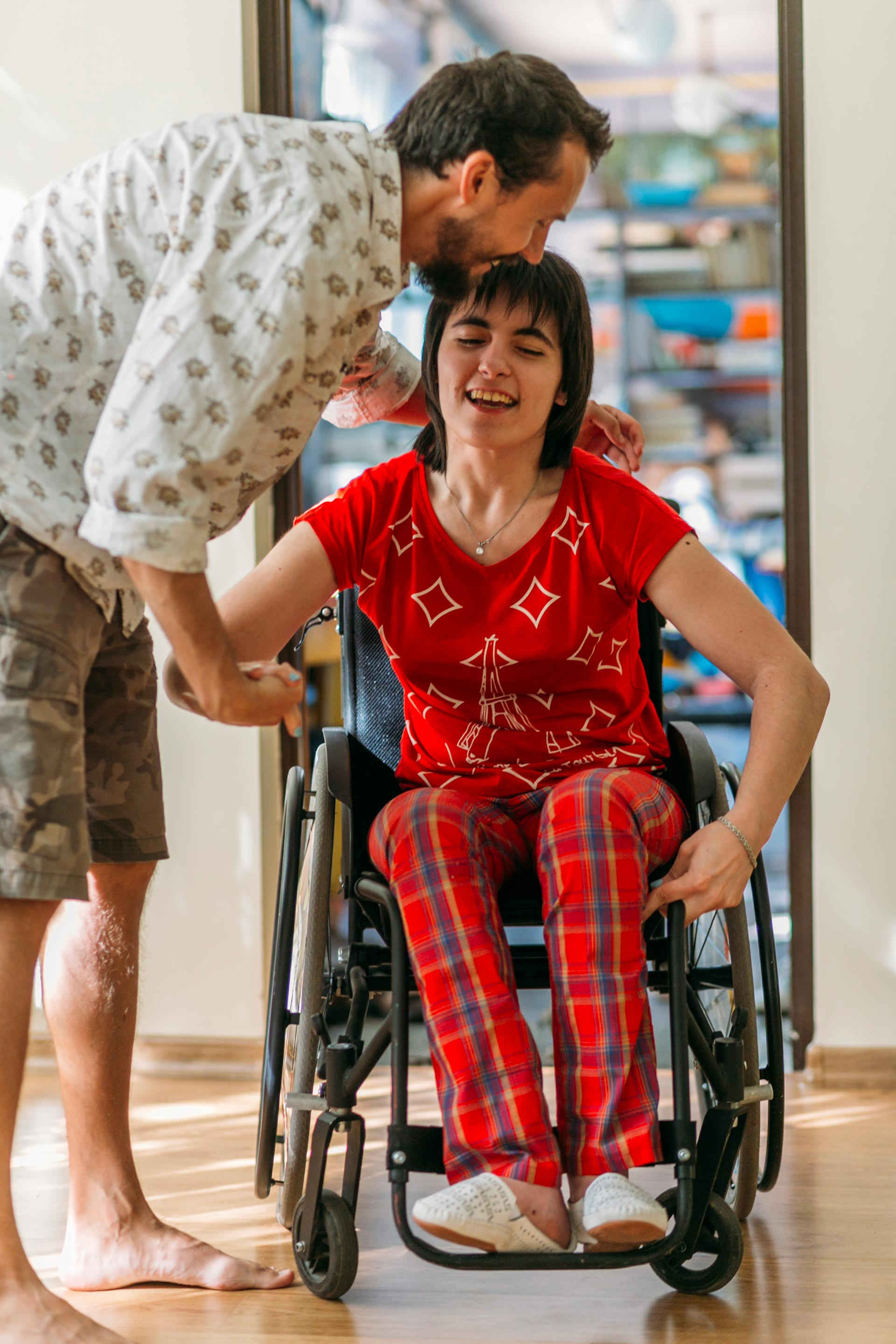
However according to Roman, they are most excited about two projects that are setting an example of inclusivity for the rest of the city:
— The city is usually totally unfit for people with disabilities, and all the city does for them is bring everyone together in the House of Culture and put on a concert once a year, on the International Day of Persons with Disabilities.
Instead, inclusive “SHELTER+” projects are an attempt to actively and directly involve people with disabilities in the creation of something that is real and necessary. One example is “Friendship Without Limits”, a project where teams of able- and non-able bodied people go for picnics, to the cinema or bowling.
“Better Together” is an art project, where people with Down’s syndrome, autism, visual, hearing and mobility impairments work together to create artistic dance and theater products for the real stage:
— We are not just helping specific people, we are also changing how a wide range of people view the world.
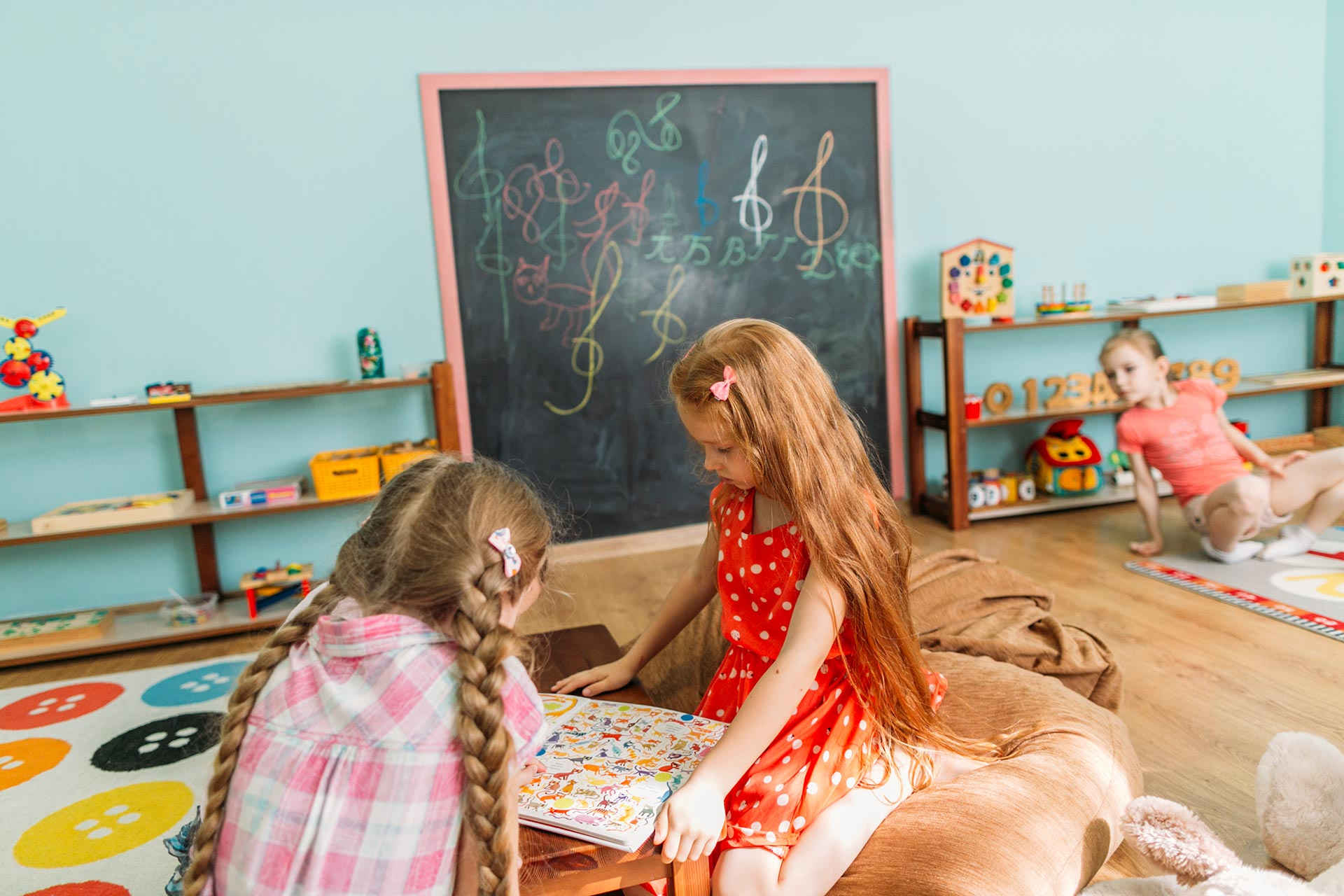
From the inside out
Over a decade of working on such a multi-sector project, there were many moments that could have stopped the brothers from realising their dream. But they have been successful. What they do is no doubt perceived as something great:
— There are inner desires, opportunities and resources, which I believe the Creator placed inside of us. And what is inside must be realized in some way. Of course, I could go to work in a factory somewhere or just be a teacher at the school. Most likely, I would be more or less good, but I would not be truly myself. And obviously there are just so many things one needs to do. These are banal things, they have been said millions of times in Ukraine over the last few years, but we are clearly aware that nobody but us is prepared to do it. That’s how it is.
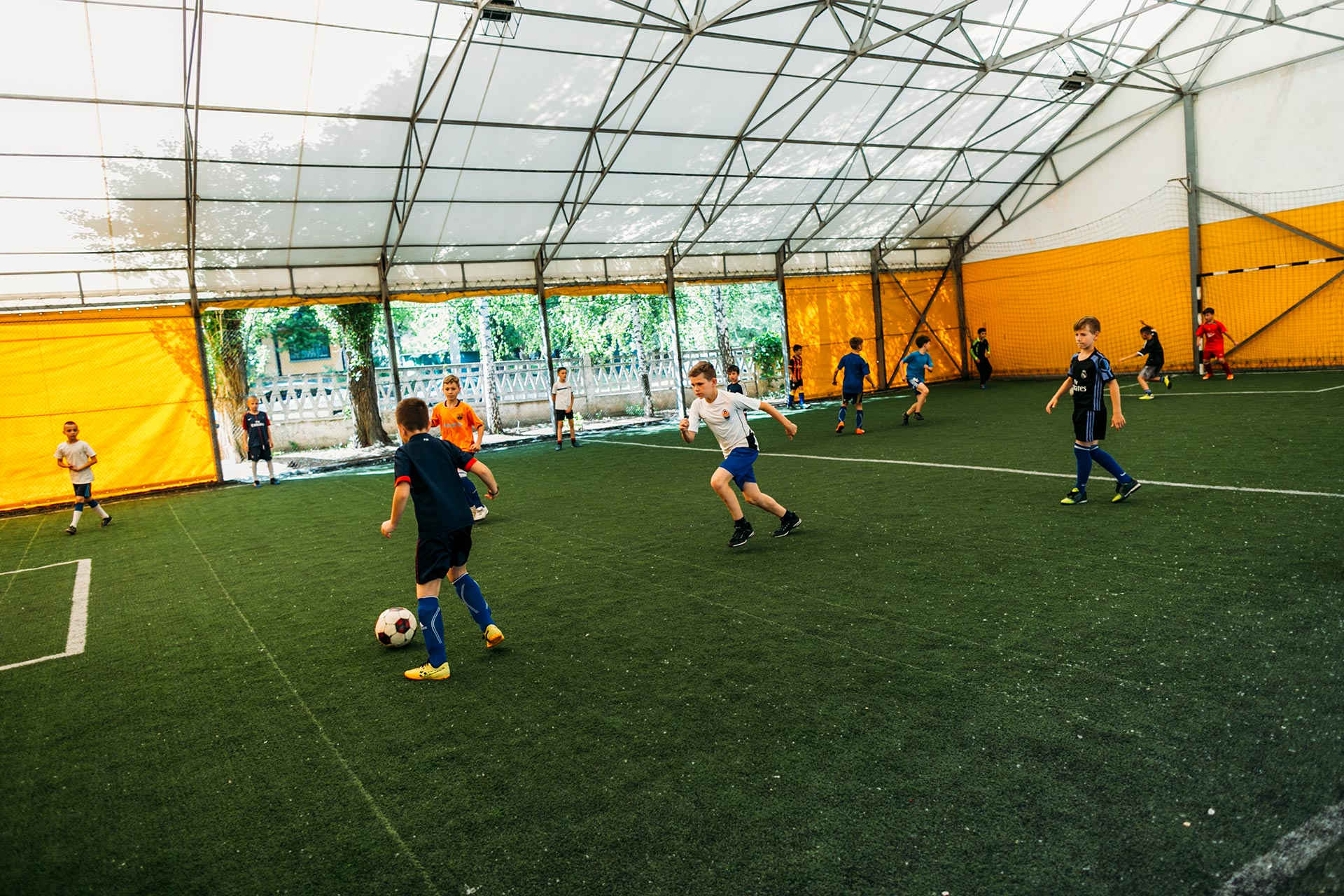
Building a community
“SHELTER+” has been active for over 15 years. It is now at the stage where its founders can really say what they are proud of. Julii considers the greatest achievement to be that people have been united, taught and stimulated in their center:
— We are not brilliant, we have not invented something enchanting. But we manage to connect people better than the majority of others. We have seen in the West, that people continue to donate money to their university, come back and give open lectures, become scholarship founders, and more, decades after they have graduated. We do not have this in Ukraine, so we have begun to slowly institutionalize this sphere. And secondly, which I am really proud of, we finally managed to get businessmen (however flimsy it may sound) in Kryvyi Rih involved in contributing to the wider community. This is a very cool trend that, I believe, will save Ukraine.
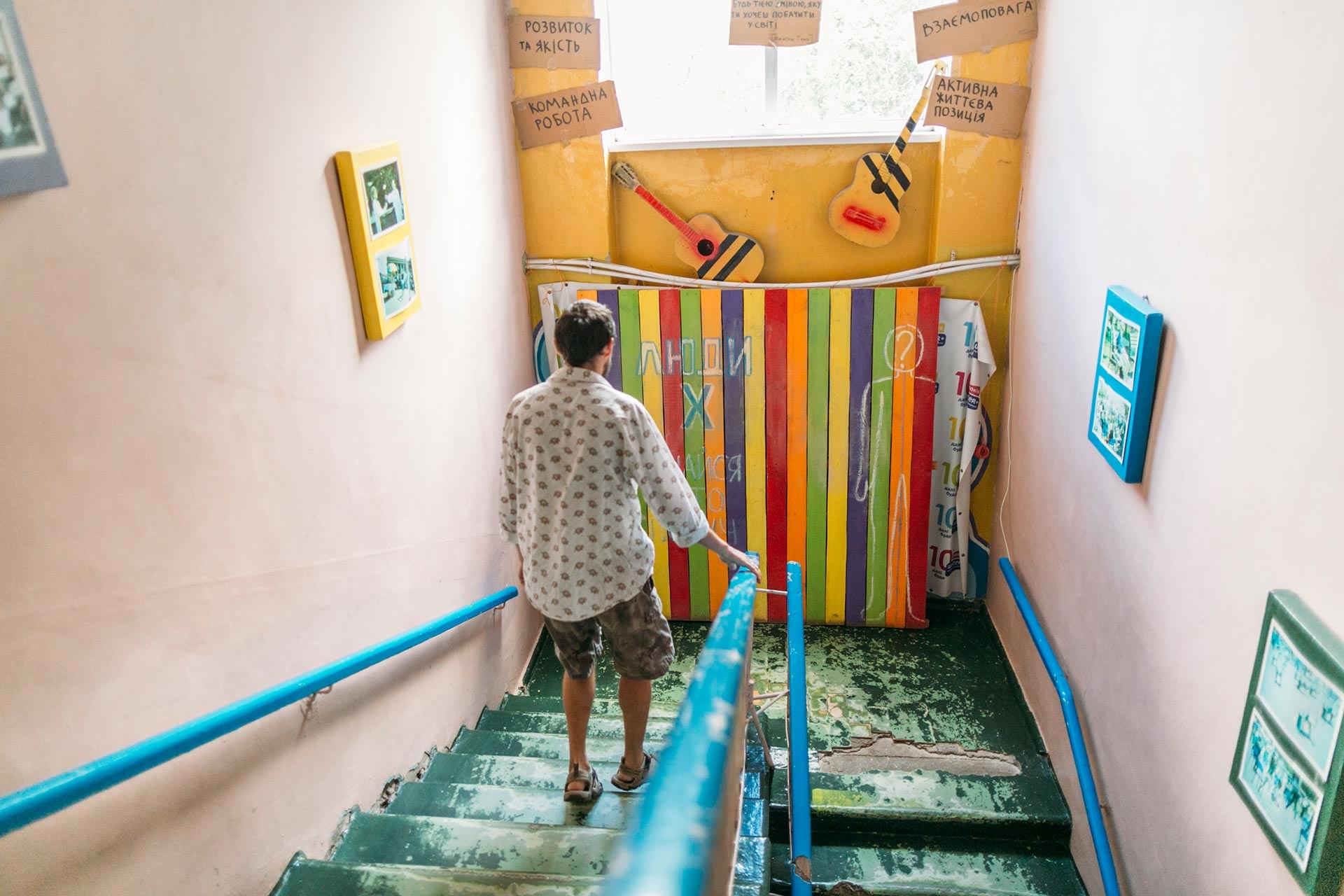
Roman, on the other hand, is most pleased that they have remained true to themselves despite all the troubles and difficulties:
— I am proud that we did not give up, close, cringe or sell out. Of course, we have been very flexible, in some ways we have changed our approach to situations, but the key values have remained the same.

